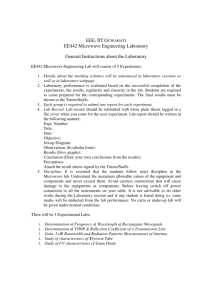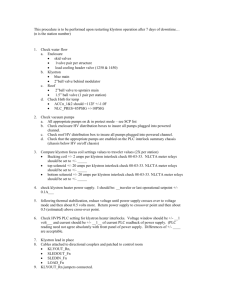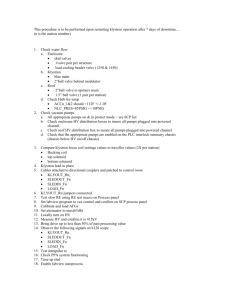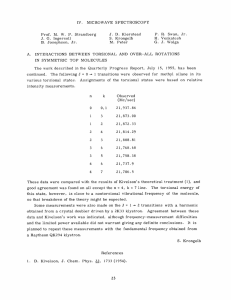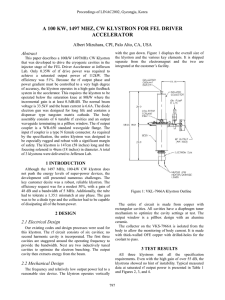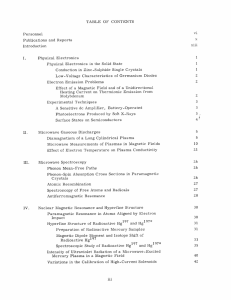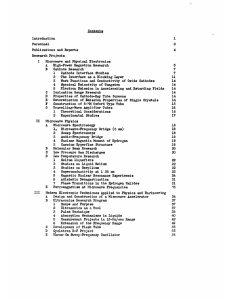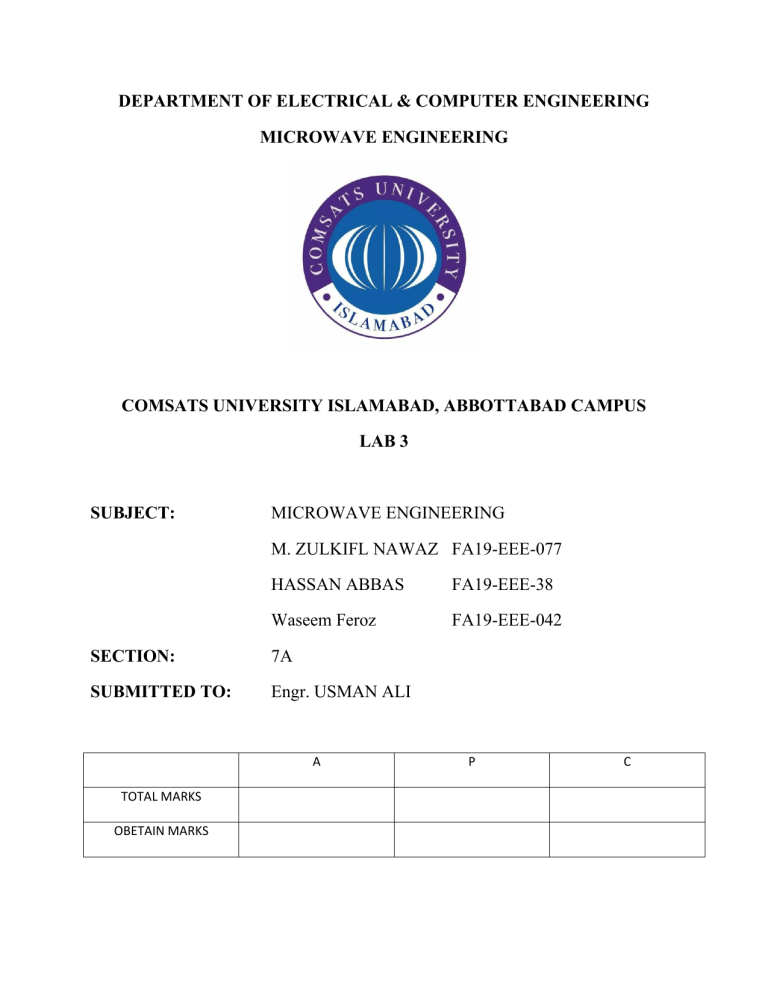
DEPARTMENT OF ELECTRICAL & COMPUTER ENGINEERING MICROWAVE ENGINEERING COMSATS UNIVERSITY ISLAMABAD, ABBOTTABAD CAMPUS LAB 3 SUBJECT: MICROWAVE ENGINEERING M. ZULKIFL NAWAZ FA19-EEE-077 HASSAN ABBAS FA19-EEE-38 Waseem Feroz FA19-EEE-042 SECTION: 7A SUBMITTED TO: Engr. USMAN ALI A TOTAL MARKS OBETAIN MARKS P C [Setup for study of Klystron tube] 1. Statement Introduction to waveguide trainer, its components and working of klystron tube. 2. Literature Review The name klystron comes from the Greek verb κλύζω (klyzo) referring to the action of waves breaking against a shore, and the suffix -τρον ("tron") meaning the place where the action happens. The name "klystron" was suggested by Hermann Fränkel, a professor in the classics department at Stanford University when the klystron was under development. A klystron is a specialized linear-beam vacuum tube, invented in 1937 by American electrical engineers Russell and Sigurd Varian, which is used as an amplifier for high audio frequencies, from UHF up into the microwave range. Low-power klystrons are used as oscillators in terrestrial microwave relay communications links, while high-power klystrons are used as output tubes in UHF television transmitters, satellite communication, radar transmitters, and to generate the drive power for modern particle accelerators. Figure 7.1: Setup for study of Klystron tube Figure 7.2: Klystron tube setup 1. Klystron Power supply Klystron Power Supply Nvis 102, is a state-of-the-art solid state, regulated Power Supply for operating low power Klystrons. Figure 7.3: Klystron Power Supply 2. Klystron tubes with Klystron mount. Nvis 203 Klystron Mount. Klystron mounts are used to transmit microwave power from reflex klystron tube to rectangular waveguide Figure 7.4: Klystron tubes with Klystron mount 3. Cooling fan A Klystron tube is usually of significant power, somewhat inefficient and so produces heat which is detrimental to its life and proper operation. It must be cooled. It can be seen in Figure 6.4 above. 4. Isolator An isolator is a two-port device that transmits microwave or radio frequency power in one direction only. Due to internal behavior, the propagation in one direction is allowed while the other direction is blocked. The non-reciprocity observed in these devices usually comes from the interaction between the propagating wave and the material, which can be different with respect to the direction of propagation. It is used to shield equipment on its input side, from the effects of conditions on its output side; for example, to prevent a microwave source being detuned by a mismatched load. Figure 7.5: Isolator Nvis 204 in Klystron tube 5. Frequency meter Micrometer type frequency meter is used for high accuracy measurements. It consists of a cavity, plunger fitted with a micrometer and section of standard waveguide. Figure 7.6: Frequency meter in Klystron tube 6. Variable attenuator A variable attenuator is needed for the reduction of available microwave power, e.g., to bring the detector into the quadratic characteristics range. For this an attenuation vane is arranged along the axis of the waveguide, parallel to the electric field, and is adjusted using a micrometer screw. Figure 7.7: Variable attenuator in Klystron tube 7. VSWR meter Nvis 103A SWR Meter is a Microcontroller based Equipment with LCD. The analog meters have multiple scales which makes the instrument very complicated for the students. The digital display of SWR & dB solves the problem. Since the SWR meter equipment has a microcontroller based digital display so there is no need of expanded scales, as it was in conventional instruments. Figure 7.8: VSWR meter Nvis 103A 8. Slotted section Figure 7.9: Slotted section in Klystron tube Slotted lines are used for microwave measurements and consist of a movable probe inserted into a slot in a transmission line. The standing waves obtained are measured to know the transmission line imperfections which is necessary to have some knowledge on impedance mismatch for effective transmission. This slotted line helps in measuring the standing wave ratio of a microwave device. 9. Matched termination A matched load or a matched termination absorbs all the power incident on it without any reflection. In this respect it is equivalent to a black body in microwave range. Microwave circuit deals with very high frequency where electrical signals are no more treated as simple low frequency signal but are treated as wave. Wave has the property of reflection and transmission. To avoid such situation proper termination of microwave system is required. 10.Multimeter A multimeter is a measuring instrument that can measure multiple electrical properties. A typical multimeter can measure voltage, resistance, and current, in which case it is also known as a volt-ohm-milliammeter (VOM), as the unit is equipped with voltmeter, ammeter, and ohmmeter functionality. Analog multimeters use a microammeter with a moving pointer to display readings. Digital multimeters (DMM, DVOM) have numeric displays and have made analog multimeters obsolete as they are cheaper, more precise, and more physically robust than analog multimeters. 11.Oscilloscope An oscilloscope, previously called an oscillograph, and informally known as a scope or o-scope, CRO (for cathode-ray oscilloscope), or DSO (for the more modern digital storage oscilloscope), is a type of electronic test instrument that graphically displays varying signal voltages, usually as a calibrated two-dimensional plot of one or more signals as a function of time. The displayed waveform can then be analyzed for properties such as amplitude, frequency, rise time, time interval, distortion, and others. Originally, calculation of these values required manually measuring the waveform against the scales built into the screen of the instrument. Modern digital instruments may calculate and display these properties directly. Figure 7.10: Oscilloscope 3. Conclusion In this lab we learned klystron tube and its different components. Their working and properties.
